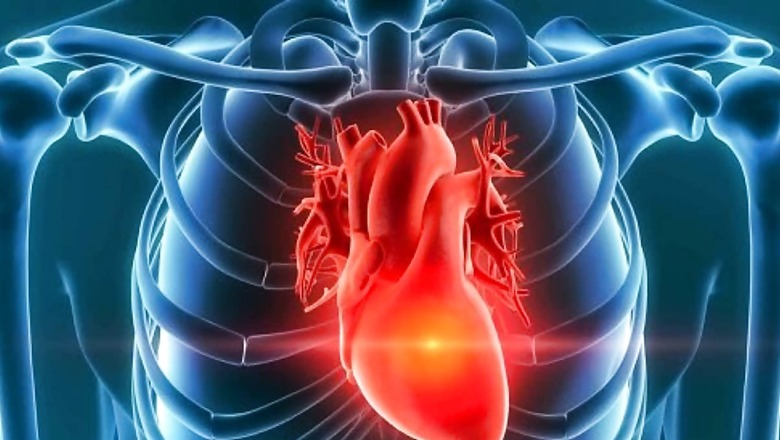
views
Most individuals these days are concerned about high cholesterol levels. This condition is caused by numerous lifestyle behaviours, such as bad meals, a lack of physical exercise and more. Cholesterol is classified as a lipid, which is a waxy, fat-like molecule produced by the liver. It is necessary for the production of cell membranes, hormones, and vitamin D in the body. Because cholesterol does not dissolve in water, it cannot pass through the bloodstream on its own. To aid in cholesterol transport, the liver produces lipoproteins. This protein substance can be divided into two types: low-density lipoprotein (LDL) and high-density lipoprotein (HDL). HDL, commonly known as good cholesterol, is critical for the healthy function of the body. Nutritionist Anjali Mukherjee suggests a few ways you can increase HDL in your body.
HDL cholesterol helps reduce the risk of heart disease and strokes, so it is critical to enhance its levels in the body. The first method suggested by the nutritionist is to “Get Moving.” She states that walking, cycling, or swimming can all assist to raise HDL cholesterol levels.
View this post on Instagram
Next, the nutritionist suggests replacing unhealthy fats in the diet with healthy fats. Avocados, almonds, seeds, and animal ghee all contain healthy fats which should be incorporated in the diet. Furthermore, omega-3 fatty acids can increase HDL cholesterol and improve cardiovascular health. Fatty fish, flaxseeds, chia seeds, and walnuts should all be included in your diet. Lastly, she mentioned that refined carbs like white bread and pasta are hazardous because they lower HDL cholesterol levels in the body. We should avoid consuming sugary foods and beverages.
The nutritionist wrote, “These simple yet very effective changes can help you increase HDL cholesterol levels and improve your overall cardiovascular health.” However, she added, before making significant changes to your diet, exercise routine, or medication regimen, you should check with a healthcare practitioner, especially if you have underlying health concerns or are currently taking drugs.
Meanwhile, the other type of protein, which is low-density lipoprotein (LDL), is commonly known as bad cholesterol. If your bloodstream has an excess of LDL cholesterol, you may suffer from high cholesterol levels. This can lead to a variety of health issues, including heart attacks and strokes. Hence, it is critical to visit a doctor and get treatment as soon as possible.


















Comments
0 comment